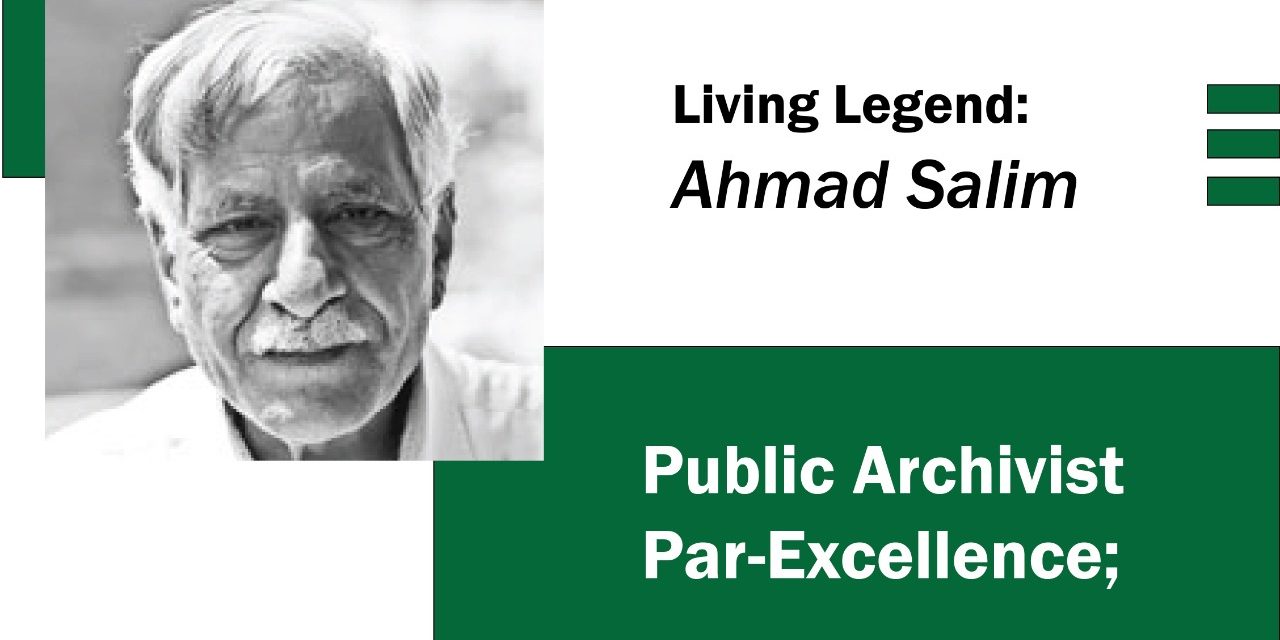My friend Ahmad Salim the poet, the novelist, the author, the historian, the chronicler and more importantly a dedicated political archivist is a unique civilizational person. I came to know him as the editor of monthly Jafakash, Karachi back in 1985 when I met him with legendary Prof. Karar Hussain at a lecture at SAHE (Society for the Advancement of Higher Education) in Lahore and the lifelong premium of this introduction was to discover a kind and caring mentor in him. In 1989 our acquaintance graduated in to various professional collaborations in ventures of mutual interest.
I have seen Ahmad Salim living with books and breathing his treasure of archives in Lahore and now in Islamabad. For more than a half century he has been meticulously collecting historic documents, rare books, magazines and old newspaper files spending almost his 100 percent income. You name a topic ranging from literature to politics his archives will provide something to start with and make sense of the topic and understand its historical evolution. I often call his traditional-cultural bag “Ahmad Salim ki zambil”. Perhaps he is the one and only public archivist who has attained excellence as a ‘one-man institution’ in Pakistan and that too with a pro-people orientation. Thank you my friend Ahmad Salim for your historic contributions.
One can imagine that he has invested his lifelong material, intellectual and human energies and resources to incrementally develop and preserve this ‘knowledge repository.’ Hundreds of national and international students, researchers and scholars have benefited from his generosity to share these materials. Besides citizens’ gratitude his contributions were acknowledged by the President of Pakistan through a ‘Pride of Performance’ Award.
If we look at his collections apart from nearly 50,000 books (including magazines), it includes complete files of newspapers, like Pakistan Times, Paisa Akhbar, Dawn, Mashriq, Viewpoint, Illustrated Weekly of Pakistan, and most of the files of Imroz, Lail-o-Nihar, etc. There are also precious materials relating to the constitutional and political history of Pakistan, such as the proceedings of the assemblies and related records.
The American Library of Congress has shown interest in his collection, once a private university also expressed its interest to acquire them and the International Institute of Social History, Holland also collaborated with him to enrich their library on South Asia.
Mt Ahmad Salim also set up South Asian Research and Resource Centre (SARRC) as a trust in 2003 to help facilitate research scholars. The Centre has grown but due to lack of resources hasn’t achieved its full potential. Perhaps we need a culture of intellectual charity to make a complete catalogue of his collection so that interested students, scholars and ordinary citizens can use these unique resources and library more efficiently to create authentic knowledge.
(By Zafarullah Khan)


